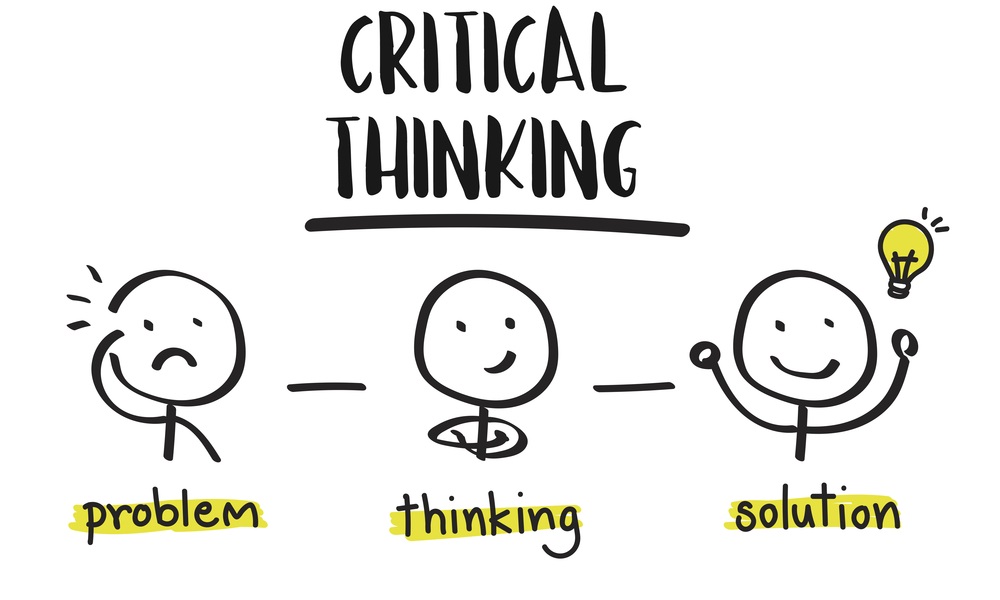
Introduction
Critical thinking is a vital skill that empowers individuals to assess information, make informed decisions, and solve problems effectively. It’s a skill that can be developed and honed over time, leading to better decision-making, improved problem-solving, and enhanced overall cognitive abilities. In this essay, we will explore ten practical ideas for enhancing critical thinking skills. These ideas range from adopting specific thinking strategies to incorporating critical thinking into daily routines, education, and professional development.
Practice Active Questioning
One of the fundamental aspects of critical thinking is asking questions. Encourage yourself to ask probing questions about the information you encounter, the decisions you make, and the problems you encounter.
Socratic Questioning:
Apply Socratic questioning techniques by asking open-ended questions that encourage deeper exploration of ideas and perspectives.
Challenge Assumptions:
Continuously challenge your assumptions and biases. Ask yourself why you believe what you believe and whether those beliefs are well-founded.
Develop Information Literacy
In today’s information-rich world, the ability to evaluate sources and discern credible information is crucial. Enhance your critical thinking skills by becoming a more discerning consumer of information.
Evaluate Sources:
When researching a topic, assess the credibility, bias, and reliability of your information sources.
Fact-Checking:
Practice fact-checking and cross-referencing information before accepting it as true. Avoid spreading misinformation.
Engage in Thought Experiments
Thought experiments encourage you to think outside the box and explore hypothetical scenarios. They stimulate creativity and foster problem-solving skills.
“What If” Scenarios:
Pose “what if” questions and explore various scenarios to understand the potential consequences of different decisions or actions.
Counterfactual Thinking:
Delve into counterfactual thinking by considering how things might have turned out differently under alternate circumstances.
Diverse Perspectives
Broaden your critical thinking by seeking out diverse perspectives and engaging in meaningful discussions with people who have different viewpoints.
Debate and Discussion:
Participate in debates and discussions, whether in person or online, to expose yourself to varying opinions and sharpen your argumentation skills.
Empathy:
Practice empathy by actively trying to understand the perspectives and experiences of others. Empathy can help you see issues from multiple angles.
Mindfulness and Reflection
Mindfulness and self-reflection can enhance your ability to think critically about your thoughts, emotions, and experiences.
Meditation:
Engage in mindfulness meditation to improve focus, reduce cognitive biases, and enhance self-awareness.
Journaling:
Keep a journal to reflect on your thoughts, experiences, and decision-making processes. This can help identify patterns and areas for improvement.
Problem-Solving and Decision-Making
Critical thinking is closely tied to effective problem-solving and decision-making. Develop these skills to strengthen your overall critical thinking abilities.
Decision-Making Frameworks:
Learn about decision-making frameworks like the decision matrix or pros and cons analysis to make more informed choices.
Root Cause Analysis:
When facing problems, practice root cause analysis to identify the underlying issues rather than just addressing surface-level symptoms.
Continual Learning and Intellectual Curiosity
Embrace a mindset of continual learning and intellectual curiosity. The more you learn, the more information you have to draw upon in your critical thinking efforts.
Read Widely:
Read books, articles, and research papers across different fields. Exposing yourself to a variety of subjects can expand your knowledge base.
Lifelong Learning:
Consider pursuing formal or informal education throughout your life. Online courses, workshops, and seminars can provide valuable insights and knowledge.
Critical Thinking Exercises and Puzzles
Engaging in exercises and puzzles specifically designed to challenge your critical thinking can be both enjoyable and effective.
Logic Puzzles:
Solve logic puzzles, riddles, and brain teasers to stimulate your problem-solving skills and deductive reasoning.
Critical Thinking Games:
Explore board games and digital games that require strategic thinking and decision-making.
Peer Review and Feedback
Seek feedback from peers and mentors to gain insights into your critical thinking strengths and areas for improvement.
Peer Review Groups:
Join or form peer review groups where members can critique and provide constructive feedback on each other’s ideas and work.
Mentorship:
Seek mentorship from individuals who excel in critical thinking. They can offer guidance and share their experiences.
Real-World Application
Apply critical thinking skills to real-world situations. Practice is key to honing these abilities.
Case Studies:
Analyze case studies from your field or industry to understand how critical thinking is applied in practical contexts.
Volunteer and Engage:
Volunteer for projects or organizations where you can apply your critical thinking skills to solve real problems and make a positive impact.
Conclusion
Enhancing critical thinking skills is a lifelong journey that requires dedication and continuous effort. By actively engaging with these ten ideas, individuals can develop sharper critical thinking abilities that will serve them well in various aspects of life, from decision-making and problem-solving to effective communication and personal growth. Critical thinking is a skill that not only empowers individuals but also enriches society by promoting informed decision-making and a deeper understanding of complex issues. As you embark on this journey to enhance your critical thinking skills, remember that it is a dynamic and rewarding process that can lead to a more fulfilling and intellectually stimulating life.
